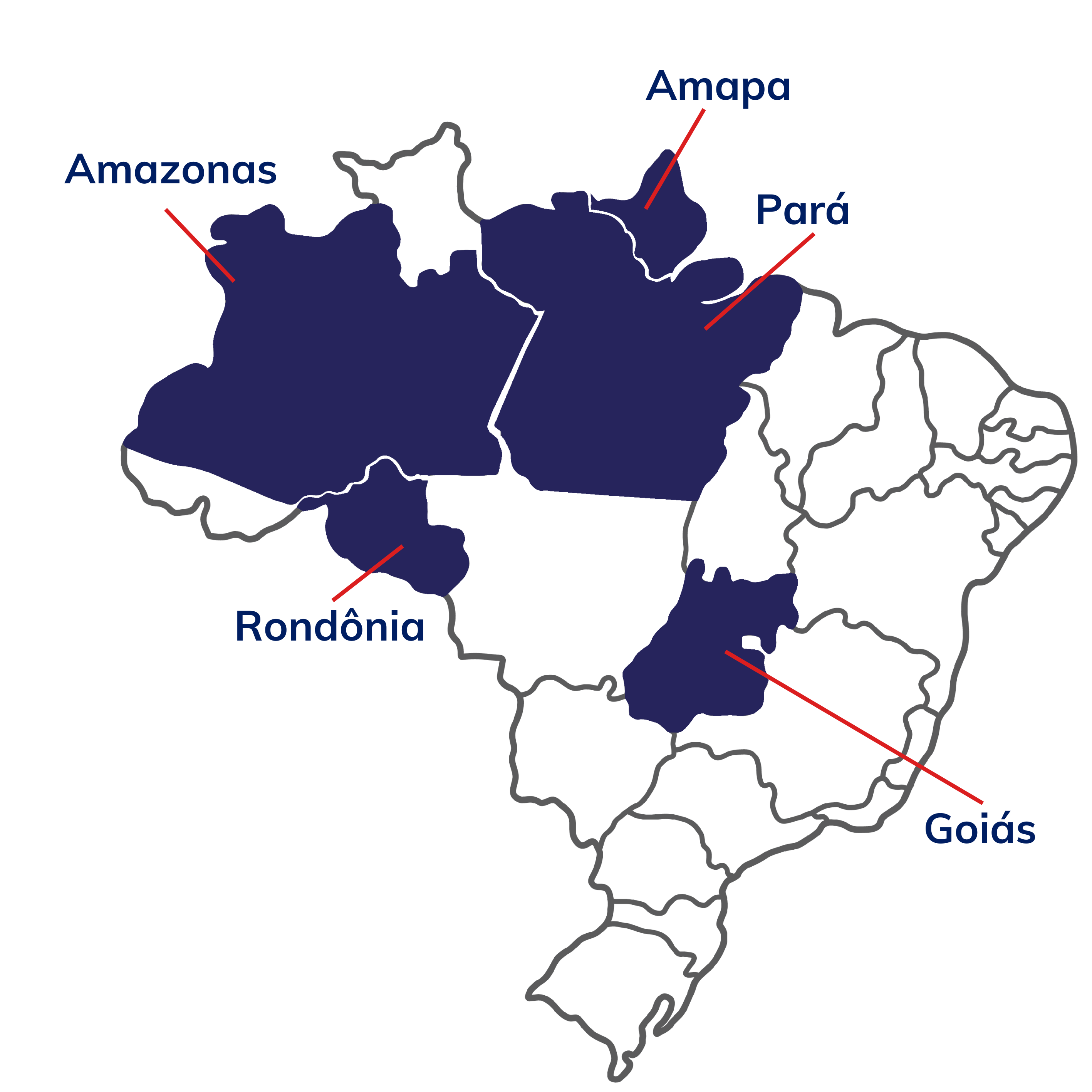Countries:
Brazil
Status:
Completed
Sector:
Nature
Paving the way for the sustained adoption of low emission production practices by community-led enterprises in the Brazilian Amazon and Cerrado.
Deforestation rates and land degradation is accelerating in the Amazon and Cerrado regions, representing nearly half of Brazil’s Greenhouse Gas (GHG) emissions. Much of the deforestation is focused on the frontier between small-scale farmlands/pastures and native forests. Therefore, strengthening sustainable smallholder agriculture and forest-based value chains can help accelerate emissions reductions, while also growing an inclusive economy that contributes to landscape resilience in the future.
This project implemented an innovative model to sustain the adoption of low emission production practices in rural and forest areas of Brazil. The model blended knowledge, technical support and adequate finance to build capacity among community enterprises, small producers, and financial agents. It also combined developing local capacities with increasing finance.
In addition, the project used technical expertise, capacity development and negotiation skills to enable local community enterprises' networks to play a leading role in the development of strategies to solve commercialisation and distribution problems of biodiversity supply chains. The final output was an innovative monitoring, evaluation, and learning (MEL) platform that measures direct impacts of community enterprises on land use and their contribution to reducing deforestation and carbon emissions.
The project was delivered by Conexsus in partnership with Bank of Amazonia and Terras App Solution. The team also partnered with the Universidade Federal de Minas Gerais (UFMG) to develop an online platform for the state of Pará to scale-up Cadastro Ambiental Rural (Rural Environmental Registries – CAR) analysis.
“The meetings were very useful. Now we will have the opportunity – and the challenge – to internalise this new methodology and develop better businesses for handicrafts and agro-extractive production in our region.”
Dalembert Jaccoud
Community Association of Artisans and Small Rural Producers of Mateiros
“With this project, AAR is daring to transform itself into a women's cooperative, which is a significant advance for everyone here and one of the positive results of the project. We just have to thank everyone.”
Workshop participant
Associação Agroecológica de Rondônia (AAR)

credit enablers hired and trained, operating with community enterprises in partnership with Banco da Amazonia
producers being assisted with financial education and support in building Programa Nacional de Fortalecimento da Agricultura Familiar (Pronaf) credit projects
producers have already been approved, representing BRL 1.5 million of public money now financing low-carbon rural production where none existed previously
organisations engaged in capacity building, which included modelling workshops and the construction of individual business canvases
Conexsus successfully hired and built capacity of credit enablers operating with community enterprises. This network of credit enablers is expected to continue to engage, support and upskill family farmers, facilitating the wider adoption of low-carbon rural practices in Brazil.
Key outputs achieved by the project include:
indigenous and 6 quilombolas (slave descendent communities) organisations engaged in capacity building of community enterprises
women-led organisations were also engaged in the capacity building
in-person panels were held to train credit enablers on GESI actions
projects (30% of the total) designed by women with support by both male and female credit enablers, have been approved by BASA
The project worked closely with local communities to develop GESI considerations and ensure continued impact beyond UK PACT funding. To achieve this, GESI was embedded across two key areas:
The GESI training was delivered through two panels and one online module. Two credit enablers who attended the training have since developed seven new credit projects together with female family farmers. The long-term impact of these actions is already starting to be seen, as credit projects designed by women are being submitted to BASA.
So far, 45 projects (30% of the total) designed by women with support by both male and female credit enablers, have been approved by BASA.

The project allowed counterparts greater access to public credit, and showed new approaches to business management and how a monitoring system can support decision making and strategy building. It is already contributing to long-term GESI impacts in the region through the creation of credit projects with a specific GESI focus.
By implementing the credit enablers network and expanding the monitoring system, Conexsus engaged other financiers, such as Norway’s International Climate and Forest Initiative (NICFI), to continue investing in and scaling up the strategy. UK PACT also made it possible to test the automatised CAR analysis system, a novel approach that will speed up CAR validation and the protection of natural vegetation. What’s next? Building on this initial implementation to develop the network of credit enablers to continue supporting access to public credit, and to use the CAR analysis system whilst replicating and scaling up to other regions.
UK PACT (Partnering for Accelerated Climate Transitions) is a unique capacity-building programme. Jointly governed and funded by the UK Government’s Foreign, Commonwealth and Development Office (FCDO) and the Department for Energy Security and Net Zero (DESNZ) through the UK's International Climate Finance, it works in partnership with countries with high emissions reduction potential to support them to implement and increase their ambitions for tackling climate change.
© Copyright 2025 UK PACT Privacy Notice Cookie Policy